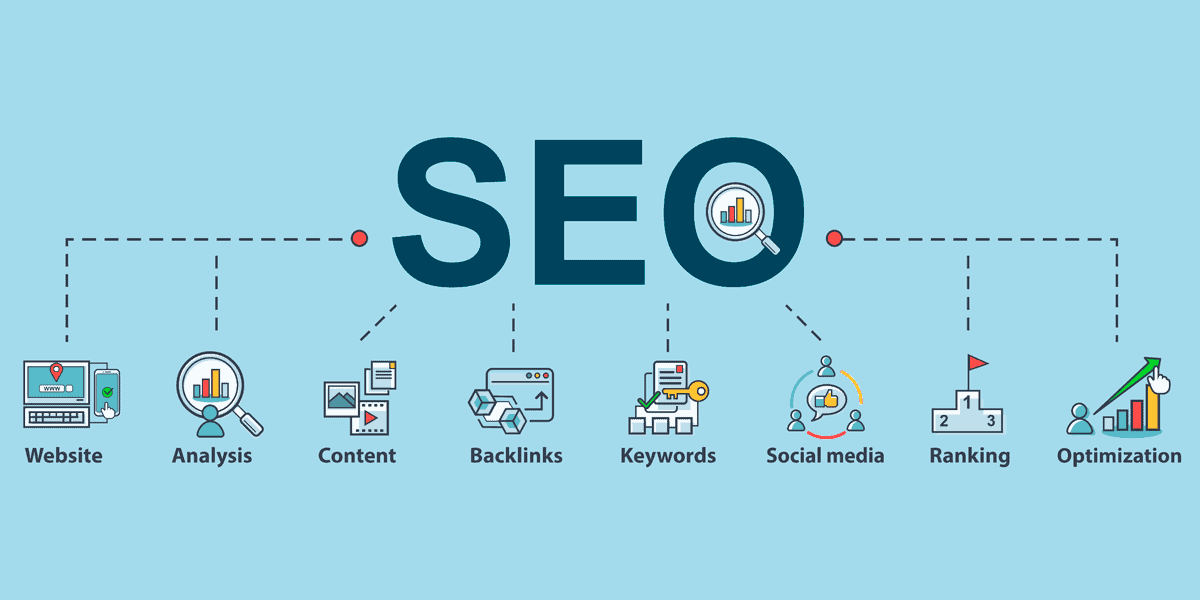
SEO
SEO, or Search Engine Optimization, is the practice of optimizing a website to improve its visibility and ranking in search engine results pages (SERPs). The goal of SEO is to increase organic (non-paid) traffic to a website by ensuring that it appears higher in search engine results for relevant queries.
Here are some key aspects of SEO for websites:
-
Keywords: Keywords are the terms and phrases that people type into search engines when looking for information. SEO involves researching and selecting relevant keywords for your website’s content and ensuring they are strategically placed in titles, headings, meta descriptions, and throughout the content.
-
Content Optimization: Creating high-quality, relevant, and valuable content is essential for SEO. Content should be well-written, informative, and engaging for users. Optimization involves structuring content with appropriate headings, using keywords naturally, and providing answers to users’ questions.
-
On-Page SEO: On-page SEO refers to optimizing individual web pages to rank higher and earn more relevant traffic in search engines. This includes optimizing meta tags (title tags, meta descriptions), using descriptive URLs, optimizing images with alt tags, and improving website loading speed.
-
Off-Page SEO: Off-page SEO involves activities done outside of the website to improve its search engine rankings. This includes building high-quality backlinks from other reputable websites, social media promotion, guest blogging, and online reputation management.
-
Technical SEO: Technical SEO focuses on optimizing the technical aspects of a website to improve its search engine visibility. This includes ensuring proper website indexing, improving site speed, optimizing for mobile devices, fixing broken links, implementing schema markup, and creating XML sitemaps.
-
User Experience (UX): Providing a positive user experience is crucial for SEO. This includes making sure the website is easy to navigate, mobile-friendly, and accessible to users with disabilities. A good user experience can lead to higher engagement metrics, such as longer dwell time and lower bounce rates, which can indirectly improve SEO performance.
-
Analytics and Monitoring: SEO involves continuous monitoring and analysis of website performance using tools like Google Analytics and Google Search Console. By tracking key metrics such as organic traffic, keyword rankings, and conversion rates, website owners can identify areas for improvement and make data-driven decisions to optimize their SEO strategies.

Overall, SEO is a dynamic and multifaceted process that requires ongoing effort and adaptation to changes in search engine algorithms, user behavior, and industry trends. By implementing effective SEO strategies, websites can improve their visibility, attract more organic traffic, and achieve their business objectives.
« Terug